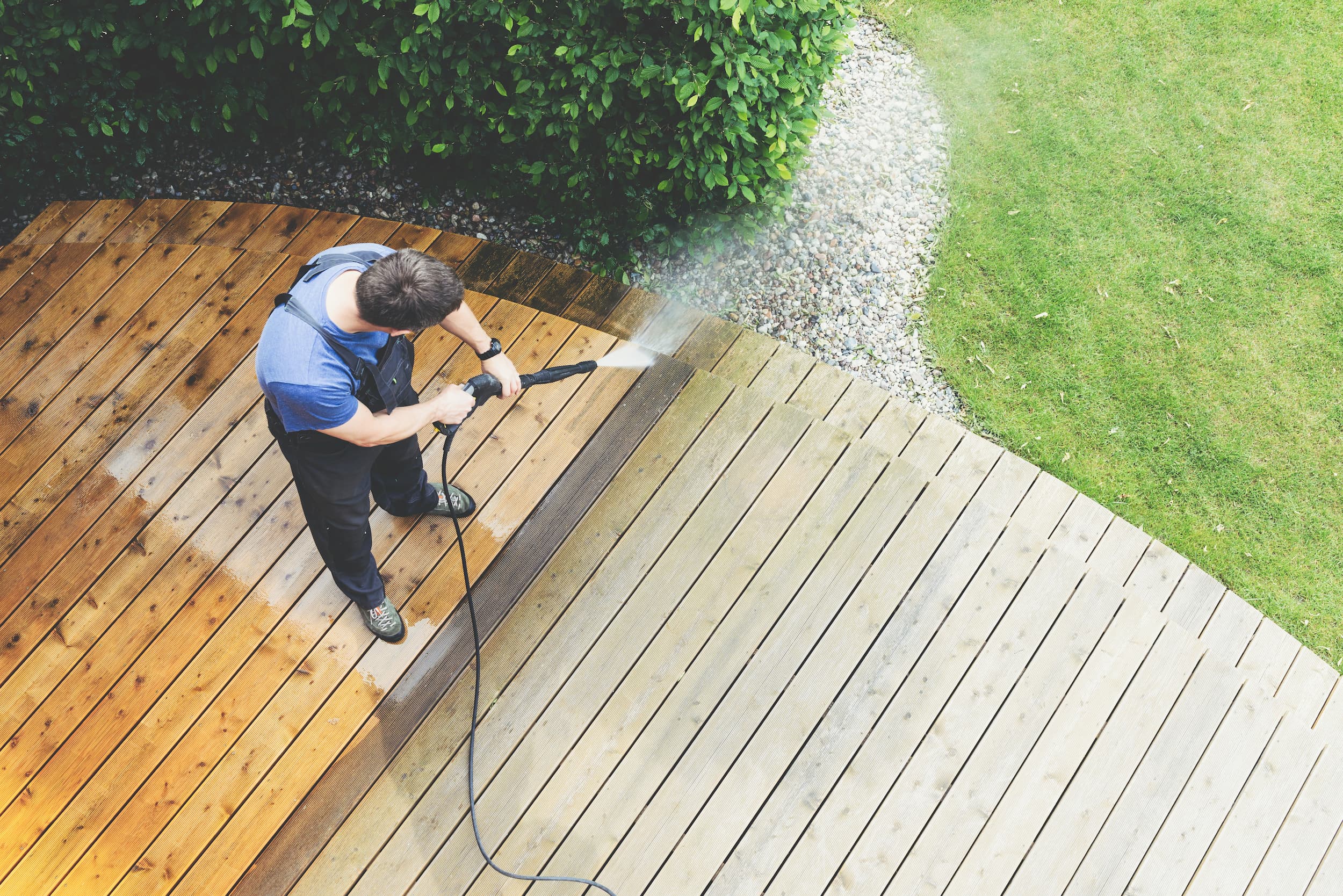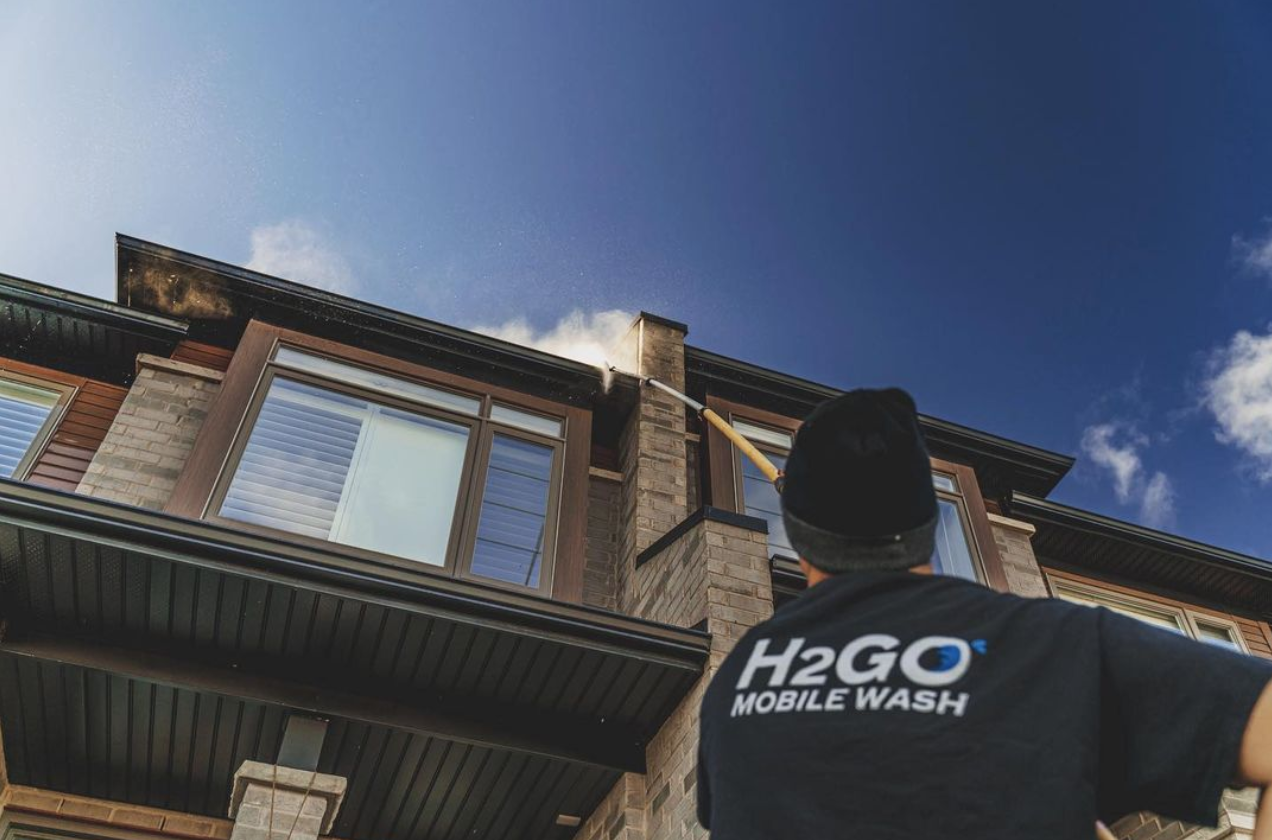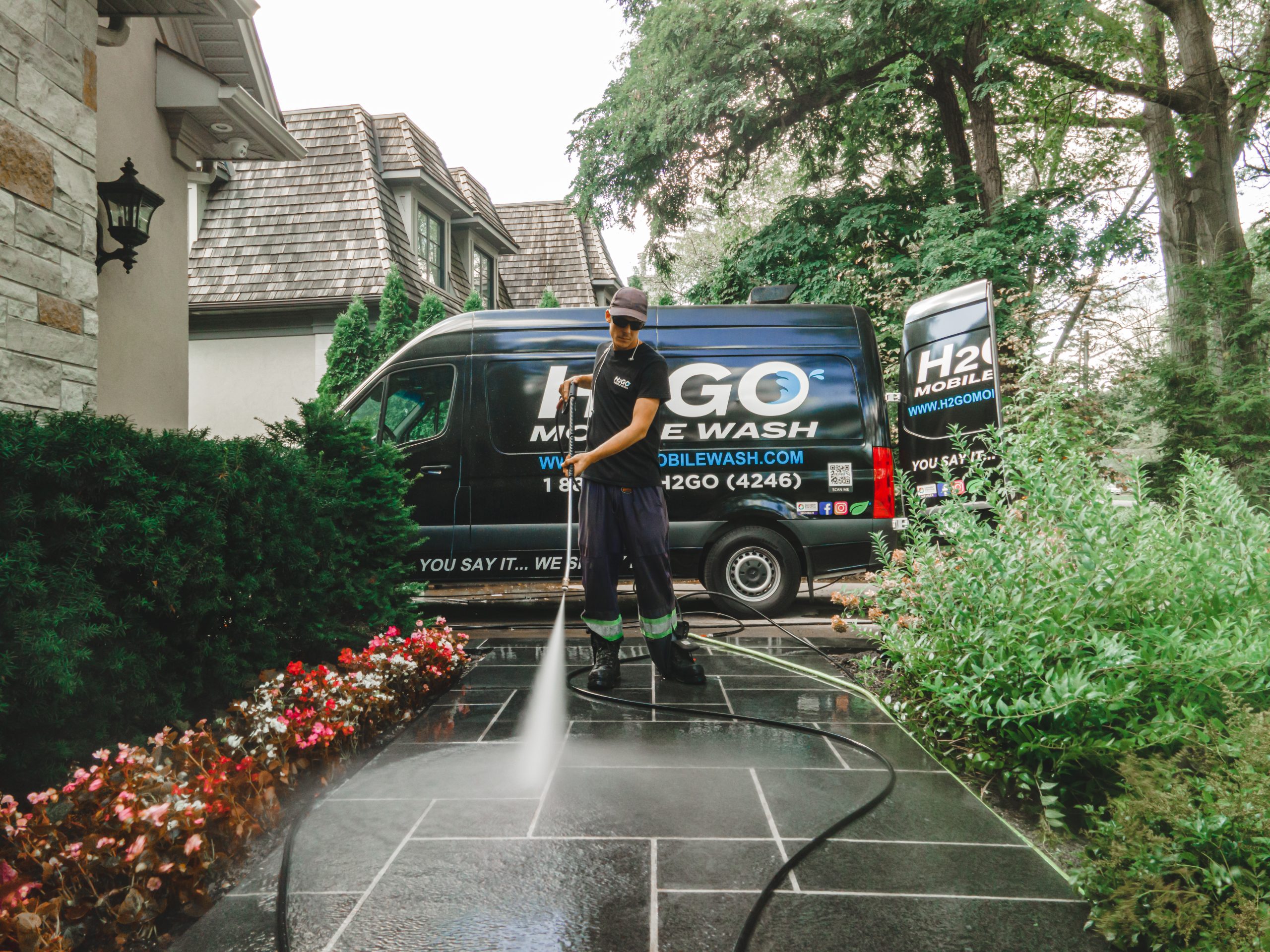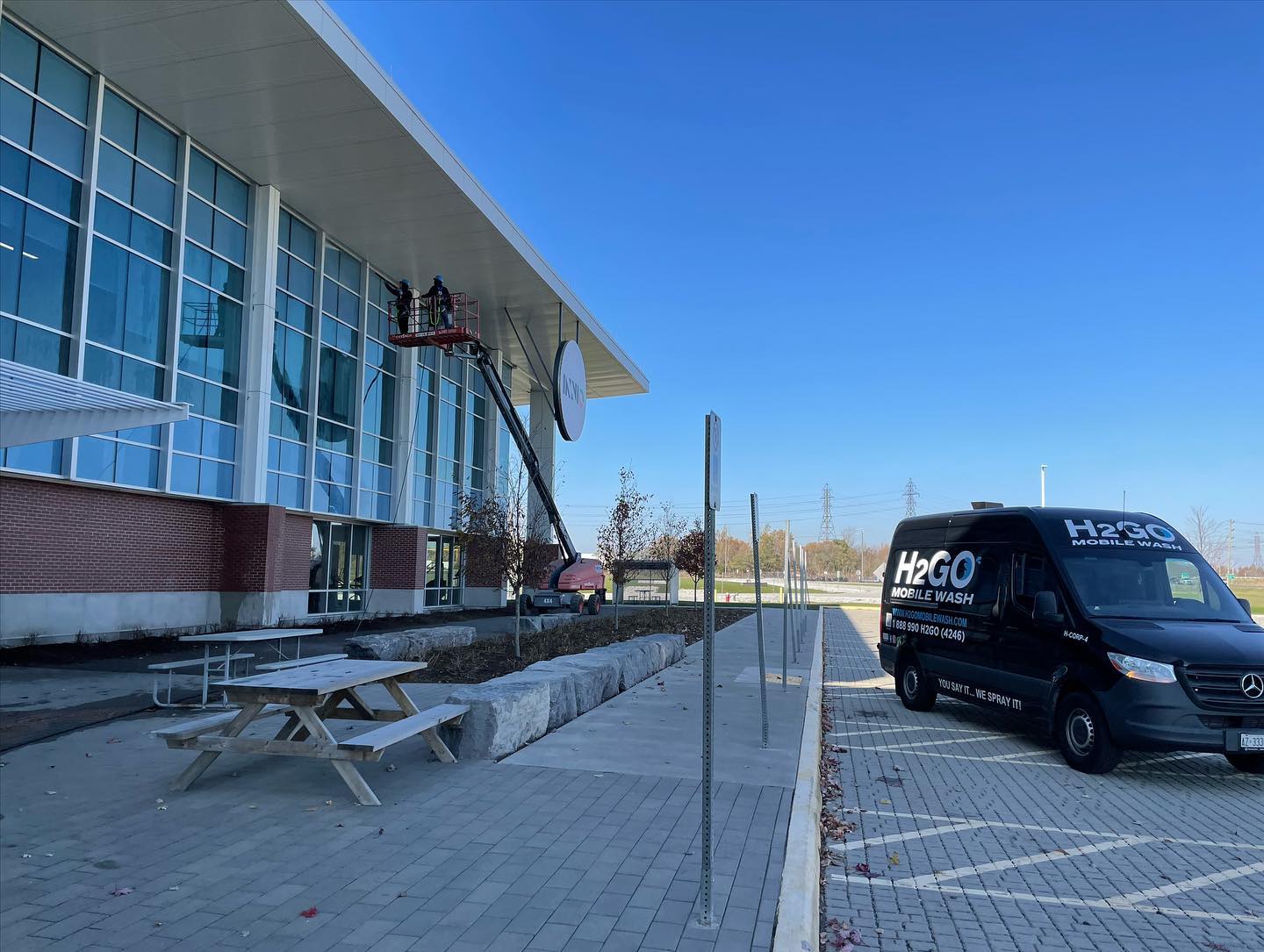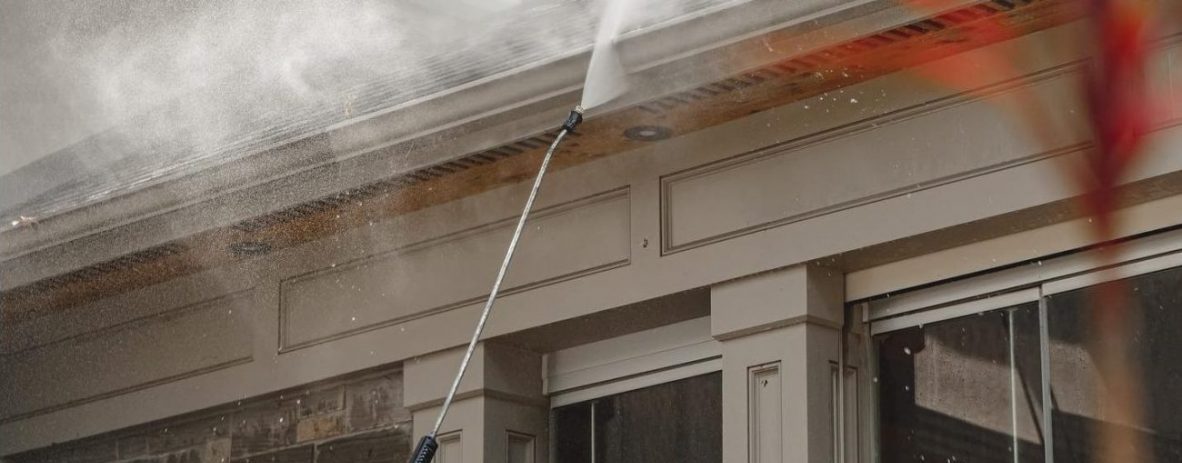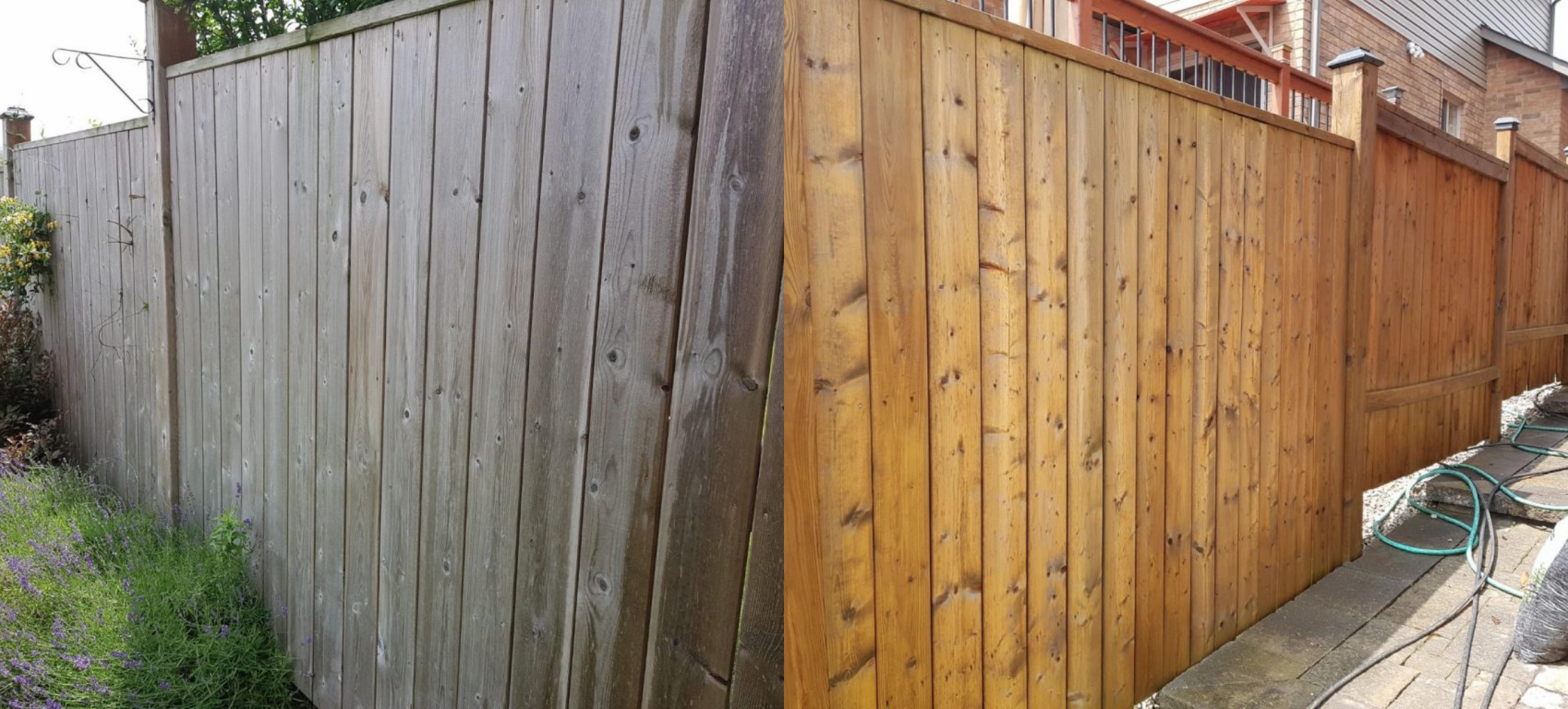Nothing compares to the high-pressurized blast that a pressure washer makes to remove stuck-on dirt, debris, moss, mold and tough to remove build-up. However, not everything around the house is safe to be tackled with a pressure washer on your own. Some outdoor surfaces require more care and should only be hand scrubbed or cleaned by a professional. To find out what surfaces can and should be cleaned with a pressure washer, check out our guide below.
The Deck
Most hardwoods and pressure treated woods can be pressure washed without a problem. To ensure that you don’t cause any markings it’s important to check your owner’s manual first to see which setting is recommended. A low-pressure nozzle might be required for some softer types of wood. For optimal cleaning, make sure you spray in the direction of the grain of the wood, not against it. To avoid any damage to your deck, it is best to hire the pros when it comes to pressure washing.
The Driveway
Oil stains, excess dirt, and embedded stains can ruin a driveway. To get rid of these pesky stains, pressure washing is a great solution to bring the asphalt, concrete or brick back its original look. Pressure washing a driveway requires a great amount of care. If you use the wrong nozzle or spray too close, you could degrade the surface and cause irreplaceable damage. For this reason, you should only have your driveway sprayed by a professional. It’s also important to note that if the driveway has areas that need repair, you should have these spots taken care of first before you turn on the water. The high-pressurized blast will only make the damage worse.
The Walkways
Pressure washing moldy, powdery and grimy looking pavers can bring your walkway back to life. Brick and concrete can be quickly restored with low pressure and the right technique. Some materials can even withstand a high-pressure force, but not all. For example, spraying brick too forcefully can result in ugly stains. Laminar sandstone is too soft and pressure washing can leave grooves in the material. So before you start, always take the time to research what settings are best for the type of walkway or patio materials. At H2GO Home, we know the right tools and techniques to use when pressure washing any surface.
The Siding
Vinyl siding, fibre cement, and wood are all very durable and will easily hold up to pressure washing. Aluminum siding, on the other hand, can dent if you try to wash it on a high setting. To prevent any damage, use the lowest setting possible through a broad nozzle. It’s also important to remember that if you have wood siding, avoid spraying any stained surfaces or wood that has been coated with lead-based paints. If washed, the lead can easily chip off when pressure washed and settle in the soil.
The Fence
Is the dirt and grime on your fence impacting the look of your property? With the right technique, your fence can also be cleaned to look like new with a pressure washer. In fact, it’s recommended that you have your fence pressure washed before you paint it to remove any dirt that could botch your paint job. Just remember that the right nozzle size is important. Wooden fences should be sprayed with lower pressure to avoid cutting marks into your fence or splintering the wood.
When pressure washing, it’s incredibly important to use the right amount of pressure and the proper technique for each surface to avoid any unwanted damage or staining. If you’re not familiar with the equipment and you’re unaware of the pressure washing guidelines for the type of surface you want clean, it’s best to call in the pros at H2GO Home. Our mobile wash team has decades of experience pressure washing all types of outdoor surfaces. If you want the best clean possible at prices you can afford, we’re the team to call. Contact us today!

